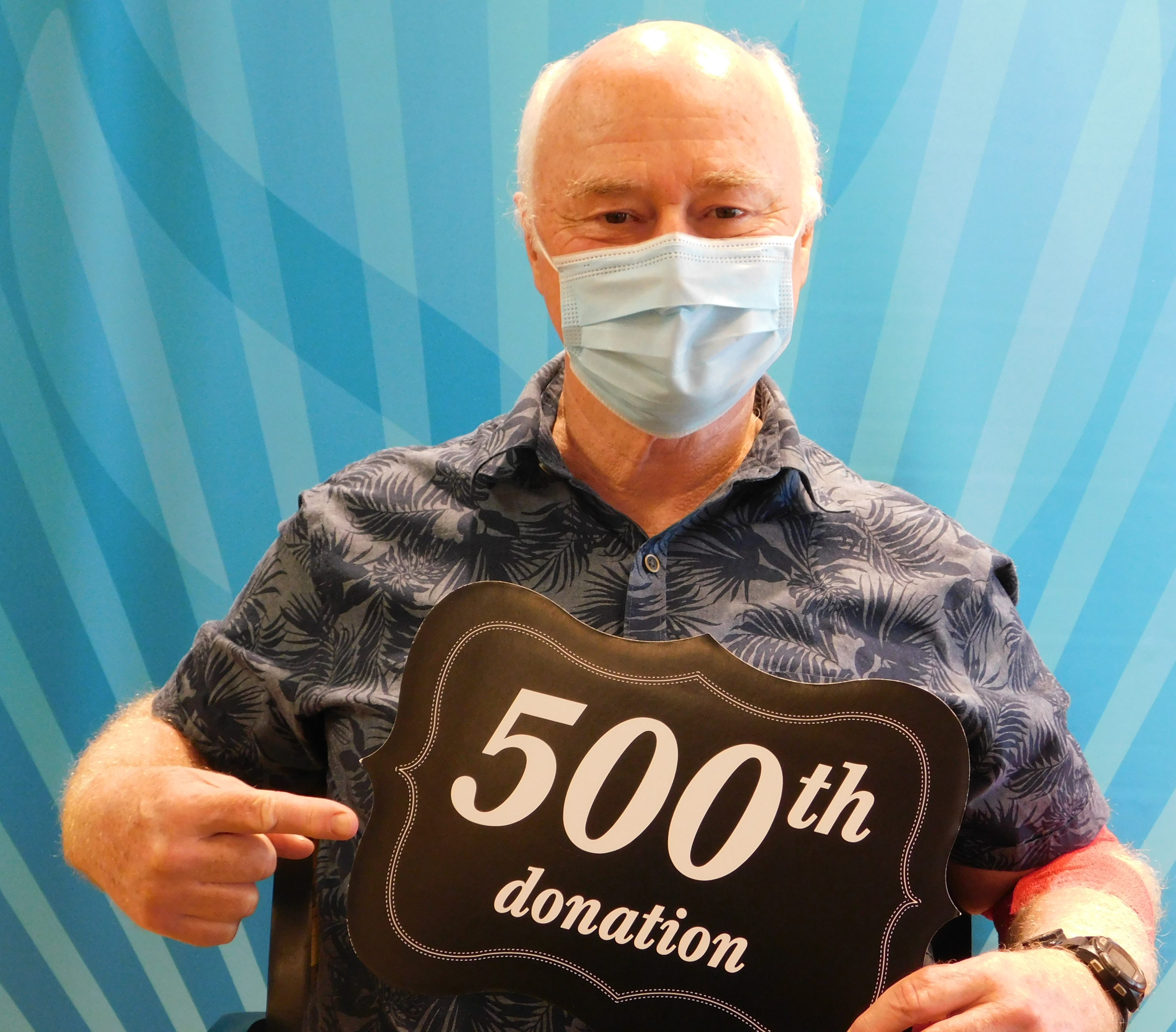
Brian’s Story: Reflecting on 500 Donations
By Brian Edwards, guest blogger and Milestone donor
When I was coming upon my 500th blood donation, I was asked, “What inspires you to give blood?” In answer to this question, there are five main points that come to mind:
- My parents instilling in me the value of contributing to community
- Some close connections to patients who needed my blood
- Learning of patients’ overall need for blood and the limited number of eligible donors
- Friendships developed with the blood center team members
- My physical ease of donation and a subsequent personal sense of well-being
Let me elaborate.
Family Values
My mother was an RN, a stewardess and a homemaker. An oft-forgotten factoid is that, during the early days of commercial aviation, stewardesses had to be registered nurses. My parents’ combined influence on “giving back” and my mother’s background as a nurse provided focus toward the health of the community. I first donated whole blood when I was 17 years old.
Personal Connection and Patient Need
After finishing my formal education, I received a position as a research geologist with the U.S. Geological Survey in Menlo Park. As a researcher, I could adjust my work schedule somewhat to allow time for blood donations at Stanford.
Around this time, sadly, a colleague’s son was diagnosed with leukemia. Knowing the impact of platelet donation on someone so close to me, I became motivated to start apheresis donations (called “pheresis” at that time). Over the ensuing years, I continued to see the effects of blood need on those close to me when another friend’s son required a blood transfusion: That lead to my first and only direct donation, whereby I gave blood explicitly for him.
I’ve given other products as well during my years as a donor. Through conversations with the Blood Center team members, I learned of the need for bone marrow transfusions and joined that donor list as well. While I was never a close enough match to donate directly for a patient (though I was a close match three times), I was glad at the possibility of helping out a patient in need. In other cases, due to commonalities in blood markers, I’ve also been asked to donate specific products for patients with very specific needs.
In aggregate, these occurrences reinforced understanding of the value of my blood to the community, giving me a personal connection to the contribution and resulting in a strong and continuing desire to donate. And, because blood cannot be artificially manufactured, I’m happy knowing all of my other non-specific donations help the community-at-large.
Blood Center Family
I have been donating at Stanford since the early 1980s. During that time, I became a blood drive coordinator for a time and now know many of the Blood Center nurses, technicians and team members. We have developed a sense of “family” and that community provides critically important reinforcement on the overall donation process. Without that reinforcement, I doubt that I would have donated as consistently as I have over the years.
Wellness
For me, the physical act of donating is easy. The donation does take a bit of time, but I have a clear sense of well-being post-donation. In fact, much like feeling out of sorts when my body is accustomed to regular physical activity but not getting that activity, I feel strangely incomplete if I do not donate regularly.
In sum, why do I donate? I receive a personal, physical sense of well-being and value in giving to my community. Besides, I also get a cookie!
Brain was featured on BYU Radio in honor of National Blood Donor Month. Check out his inspiring and informative interview at this link.
